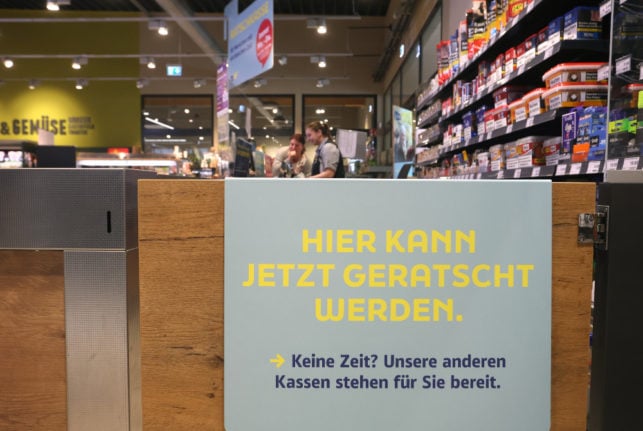I have no personal fondness for Julian Assange. I cannot forgive him for not condemning the torrent of abuse and slander suffered by the two Swedish women who, in 2010, accused him of sexual assault. His treatment of them has been shameful. Assange has continued to protest his innocence and has not expressed any regret for what happened.
But that was then and this is now. At stake is something much bigger than the fate of one man and two women. And the Swedish government bears a clear share of responsibility for the outcome.
Sweden’s prosecutors dropped the sexual assault investigation against Assange in 2017. For more than three years, he has been held in a maximum security prison in London while he has fought extradition to the United States on espionage charges. In April, a British court finally approved the extradition and referred the matter to the Home Secretary, Priti Patel.
Today (June 17), Patel gave the green light for extradition; Assange has 14 days to appeal.
Extradition would be a colossal blow against media freedom. Journalists would fear to investigate US military and surveillance operations around the world. Assange himself faces a lifetime in jail for publishing classified documents about the wars in Iraq and Afghanistan, including evidence of war crimes.
Many Swedish free speech organisations recognise this. “The information obtained thanks to Julian Assange and Wikileaks is of great public interest. In a democracy, whistleblowers must be protected, not taken to court to become pawns in a political game,” says the Swedish Journalists’ Association. A large number of press freedom and human right organisations have echoed these words, including Amnesty International, Human Rights Watch and Index on Censorship, to name but a few.
“Should Assange be extradited to the US, it could have serious consequences for investigative journalism,” says the Swedish branch of Reporters without Borders. “Through the indictment of Assange, the US is also sending a signal to all journalists who want to examine the actions of the US military and security services abroad, or US arms deals for that matter. This also applies to Swedish journalists.”
Last month, the Council of Europe’s Commissioner for Human Rights, Dunja Mijatović, called on Patel not to extradite Assange, saying it would have “a chilling effect on media freedom”. Anna Ardin, one of the women who brought the original accusations of sexual assault, describes the accusations against Assange for espionage as “helt galet” (completely crazy).
Given Sweden’s involvement in the Assange case, the continued silence from Rosenbad, the seat of government offices in Stockholm, is indefensible.
For the seven years in which Assange took refuge in the Ecuadorean embassy in London, he said consistently and repeatedly that he was prepared to face justice in Sweden, but feared extradition to the United States and therefore required a guarantee that this would not happen. His treatment in the UK is proof that his fears were justified.
As early as September 2012, The Local quoted Amnesty International on this matter: “If the Swedish authorities are able to confirm publicly that Assange will not eventually find himself on a plane to the USA if he submits himself to the authority of the Swedish courts then this will … it will break the current impasse and second it will mean the women who have levelled accusations of sexual assault are not denied justice.”
And yet, throughout, Sweden’s Ministry of Justice kept quiet. Instead, the Swedish Prosecution Authority stated repeatedly: “Every extradition case is to be judged on its own individual merits. For that reason the Swedish government cannot provide a guarantee in advance that Julian Assange would not be subject to further extradition to the USA.”
In 2016, a United Nations panel decided that Sweden had violated the Universal Declaration of Human Rights and the International Covenant on Civil and Political Rights. It called on the Swedish authorities to end Assange’s “deprivation of liberty”, respect his freedom of movement and offer him compensation. Again, the government itself remained silent, although Sweden’s director-general for legal affairs said that it disagreed with the panel.
Freedom of speech is one of the four “fundamental laws” that make up the Swedish constitution. There can be no excuse now for Morgan Johansson, Justice Minister, not to speak out in defence of Assange’s role as a whistleblower and journalist.
Imagine if Assange had revealed Russian war crimes in Ukraine and was being held in Moscow’s high security prison? Every Western leader would be up in arms.
Assange’s wife Stella Moris has Swedish citizenship. Her life, and that of their two children, will be destroyed if her husband, their father, is sent to rot in a US jail.
At this point in time, when Sweden’s independence in global affairs is in doubt owing to pressure from Turkey over its application to join Nato, it is even more vital for the government to break its silence and help bring the persecution of Julian Assange to an end.
David Crouch covered Julian Assange’s campaign in the Swedish courts for The Guardian newspaper and is among 1900 journalists to have signed a statement in his defence. He is a freelance journalist and a lecturer in journalism at Gothenburg University.





 Please whitelist us to continue reading.
Please whitelist us to continue reading.
I agree with freedom of the press but somethings should be respected as state secrets. How many spies/secret agents did he expose and what was their fate. This is what should not be published, he has caused multiple deaths.